
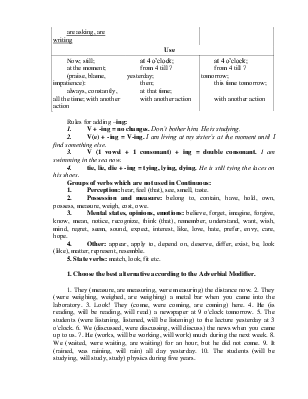
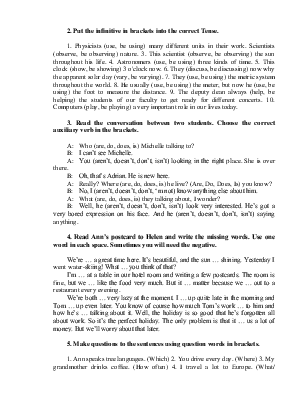
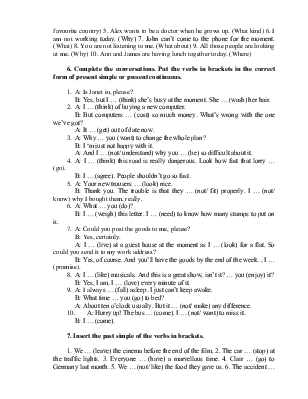
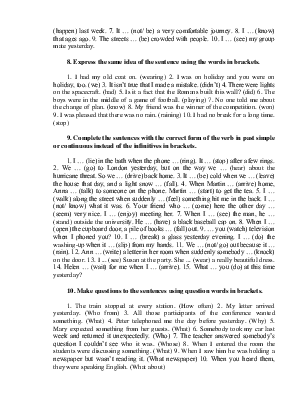
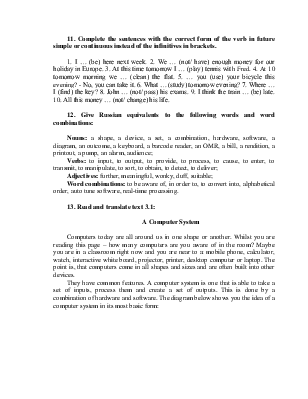
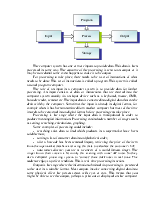
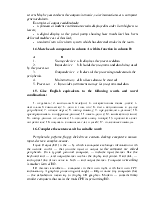
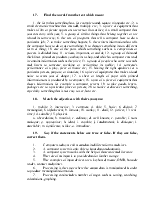
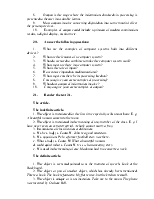
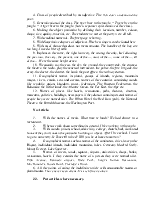
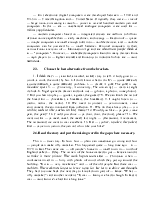
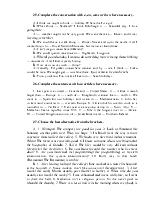
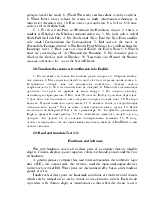
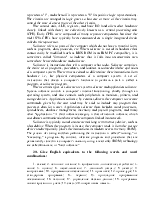
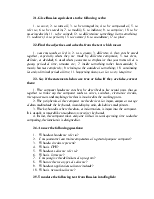
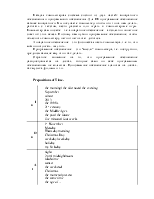
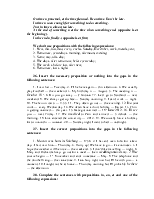
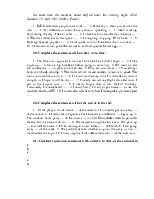
UNIT 3
Grammar: Continuous Tenses; Articles; Prepositions of Time
Continuous Tenses (Active) be + V-ing
Continuous expresses the processes happening at a moment of time or temporarily during some period of time, incomplete events, simultaneous events, or describes the habit which irritates the speaker.
The verb is used with adverbial modifiers still, all day long, throughout the year, the whole week etc. Youarereadingnow. Two minutes ago he was still sitting here. There was much work in the laboratory and he was working till late for several months. Не will be working during the summer months.
Word order in affirmative, negative and interrogative sentences:
|
Question Word |
Auxiliary Verb |
Subject |
Predicate |
Object |
AdverbialModifierofPlace(and Time) |
|
He |
is listening |
to music |
now. |
||
|
Is |
he |
listening |
to music |
now? |
|
|
Isn’t |
he |
listening |
to music |
now? |
|
|
What |
was |
he |
listening |
to |
then? |
|
Where |
will |
he |
be listening |
to music? |
|
|
When |
was |
he |
listening |
to music? |
|
|
He |
isn’t |
listening |
to music |
now. |
|
ContinuousTenses (process) |
||
|
to be asking, to be writing |
||
|
Present |
Past |
Future |
|
(I) am asking, am writing (He, she, it) is asking, is writing (You, we, they) are asking, are writing |
(I, he, she, it) was asking, was writing (You, we they) were asking, were writing |
will be asking will be writing |
|
Use |
||
|
Now; still; at the moment; (praise, blame, impatience): always, constantly, all the time; with another action |
at 4 o’clock; from 4 till 7 yesterday; then; at that time; with another action |
at 4 o’clock; from 4 till 7 tomorrow; this time tomorrow; with another action |
Rules for adding –ing:
1. V + -ing = no changes. Don’t bother him. He is studying.
2. V(e) + -ing = V-ing. I am living at my sister’s at the moment until I find something else.
3. V (1 vowel + 1 consonant) + ing = double consonant. I am swimming in the sea now.
4. tie, lie, die + -ing = tying, lying, dying. He is still tying the laces on his shoes.
Groups of verbs which are not used in Continuous:
1. Perception: hear, feel (that), see, smell, taste.
2. Possession and measure: belong to, contain, have, hold, own, possess, measure, weigh, cost, owe.
3. Mental states, opinions, emotions: believe, forget, imagine, forgive, know, mean, notice, recognize, think (that), remember, understand, want, wish, mind, regret, seem, sound, expect, interest, like, love, hate, prefer, envy, care, hope.
4. Other: appear, apply to, depend on, deserve, differ, exist, be, look (like), matter, represent, resemble.
5. State verbs: match, look, fit etc.
1. Choose the best alternative according to the Adverbial Modifier.
1. They (measure, are measuring, were measuring) the distance now. 2. They (were weighing, weighed, are weighing) a metal bar when you came into the laboratory. 3. Look! They (come, were coming, are coming) here. 4. He (is reading, will be reading, will read) a newspaper at 9 o'clock tomorrow. 5. The students (were listening, listened, will be listening) to the lecture yesterday at 3 o'clock. 6. We (discussed, were discussing, will discuss) the news when you came up to us. 7. He (works, will be working, will work) much during the next week. 8. We (waited, were waiting, are waiting) for an hour, but he did not come. 9. It (rained, was raining, will rain) all day yesterday. 10. The students (will be studying, will study, study) physics during five years.
2. Put the infinitive in brackets into the correct Tense.
1. Physicists (use, be using) many different units in their work. Scientists (observe, be observing) nature. 3. This scientist (observe, be observing) the sun throughout his life. 4. Astronomers (use, be using) three kinds of time. 5. This clock (show, be showing) 3 o'clock now. 6. They (discuss, be discussing) now why the apparent solar day (vary, be varying). 7. They (use, be using) the metric system throughout the world. 8. He usually (use, be using) the meter, but now he (use, be using) the foot to measure the distance. 9. The deputy dean always (help, be helping) the students of our faculty to get ready for different concerts. 10. Computers (play, be playing) a very important role in our lives today.
3. Read the conversation between two students. Choose the correct auxiliary verb in the brackets.
A: Who (are, do, does, is) Michelle talking to?
B: I can’t see Michelle.
A: You (aren’t, doesn’t, don’t, isn’t) looking in the right place. She is over there.
B: Oh, that’s Adrian. He is new here.
A: Really? Where (are, do, does, is) he live? (Are, Do, Does, Is) you know?
B: No, I (aren’t, doesn’t, don’t, ‘m not) know anything else about him.
A: What (are, do, does, is) they talking about, I wonder?
B: Well, he (aren’t, doesn’t, don’t, isn’t) look very interested. He’s got a very bored expression on his face. And he (aren’t, doesn’t, don’t, isn’t) saying anything.
4. Read Ann’s postcard to Helen and write the missing words
Уважаемый посетитель!
Чтобы распечатать файл, скачайте его (в формате Word).
Ссылка на скачивание - внизу страницы.